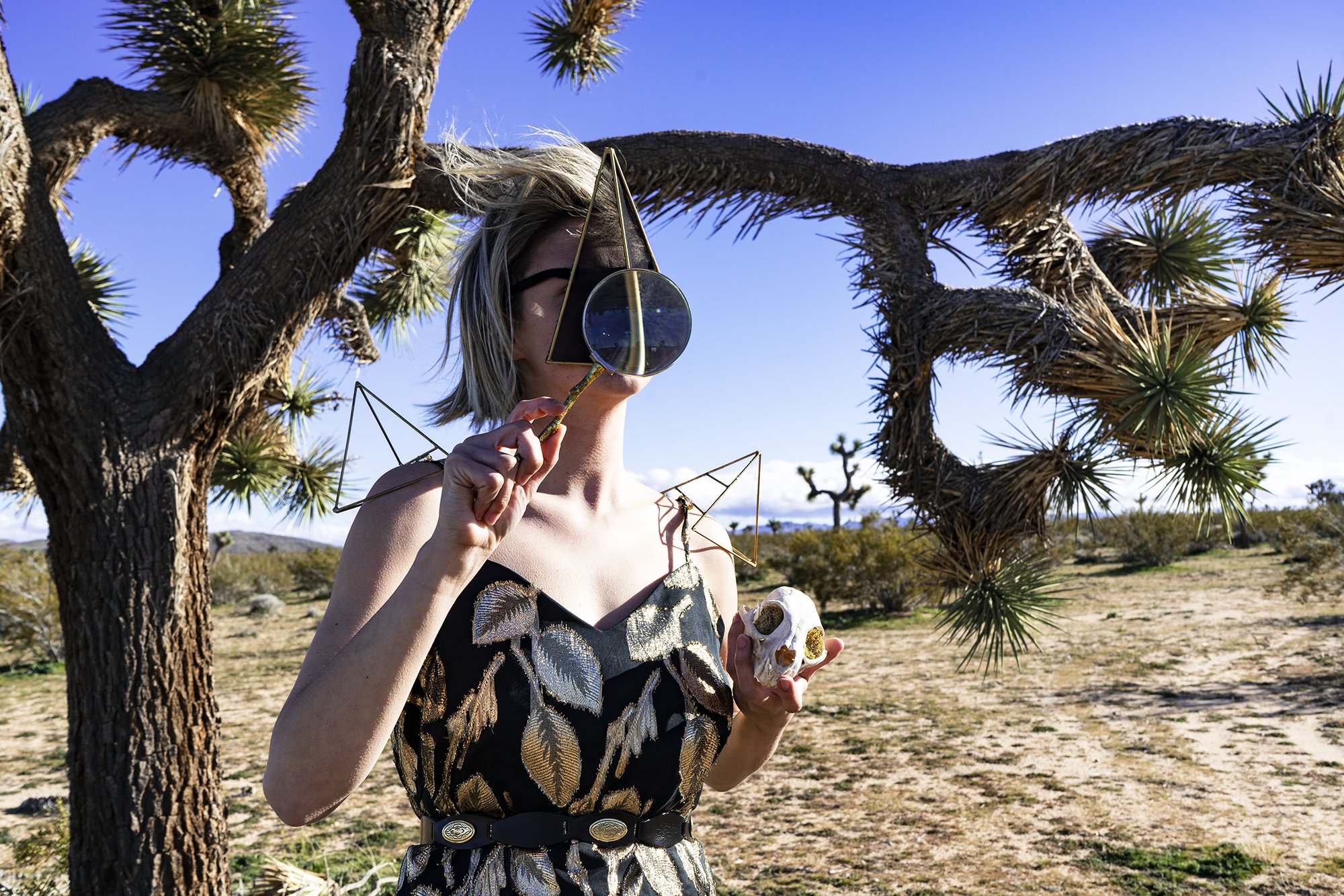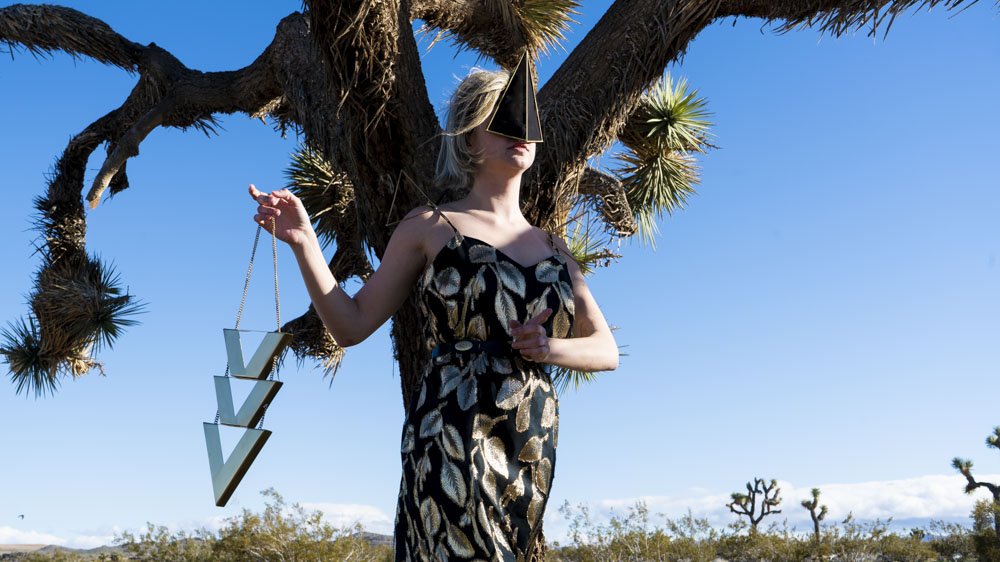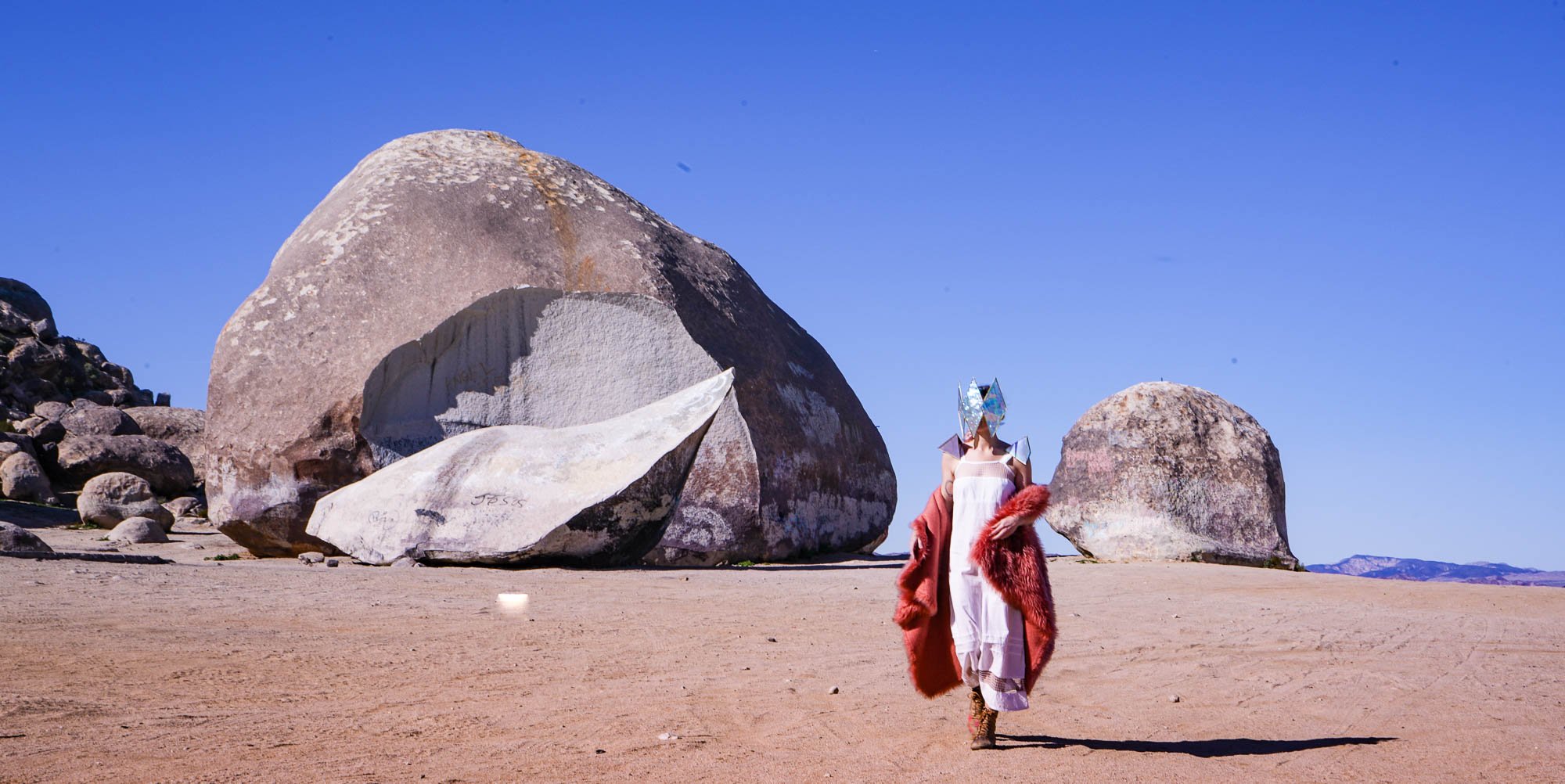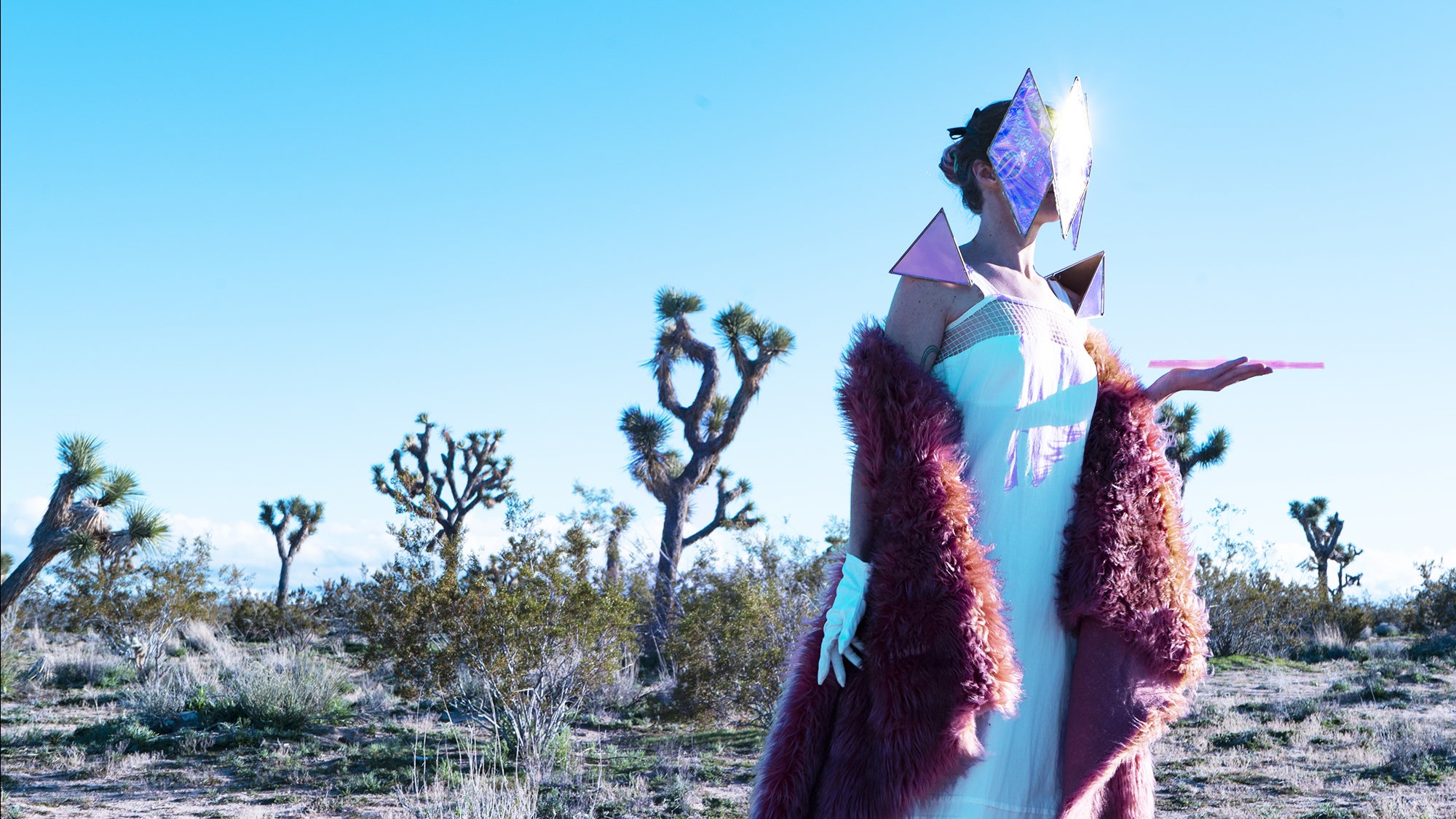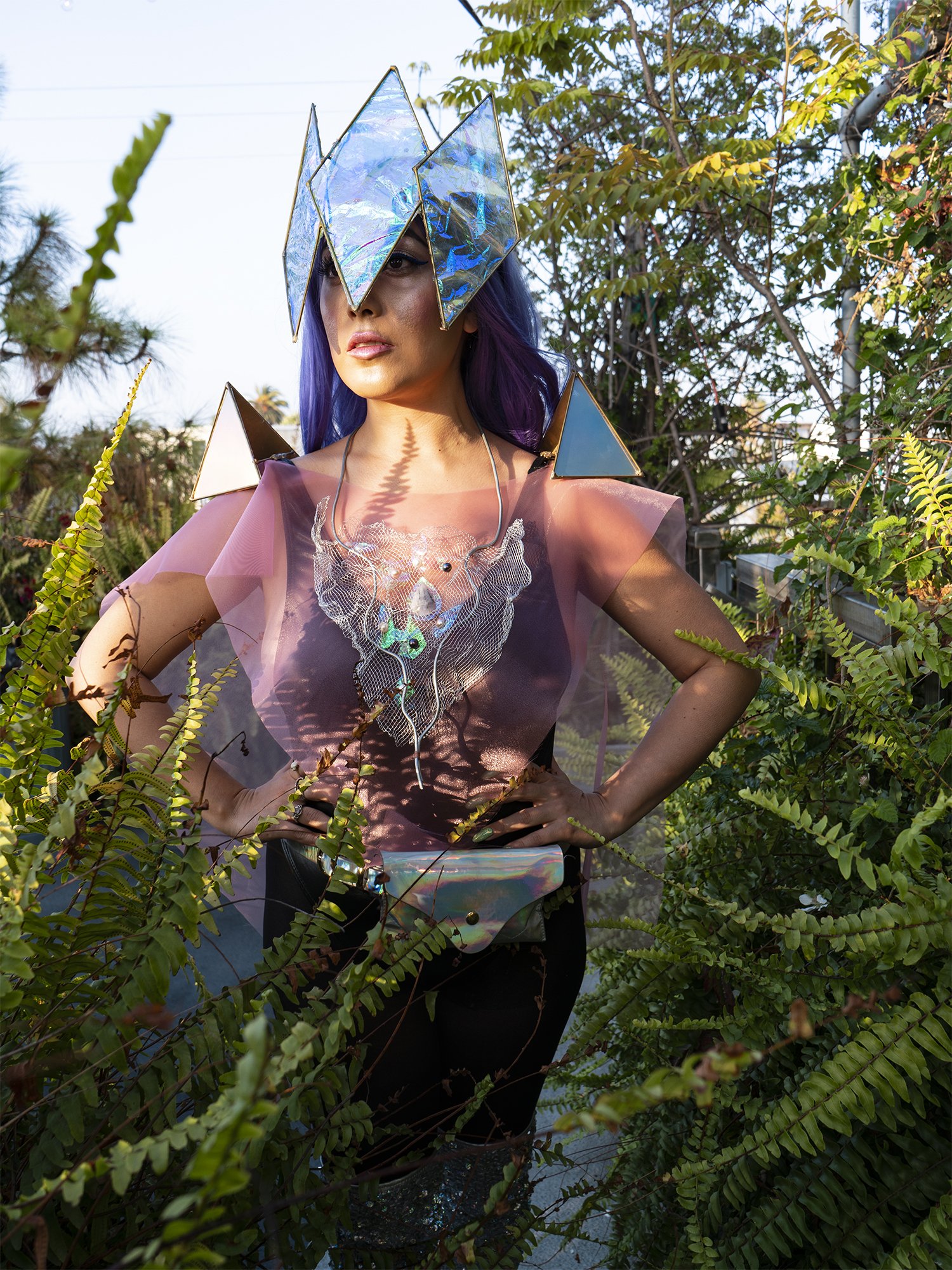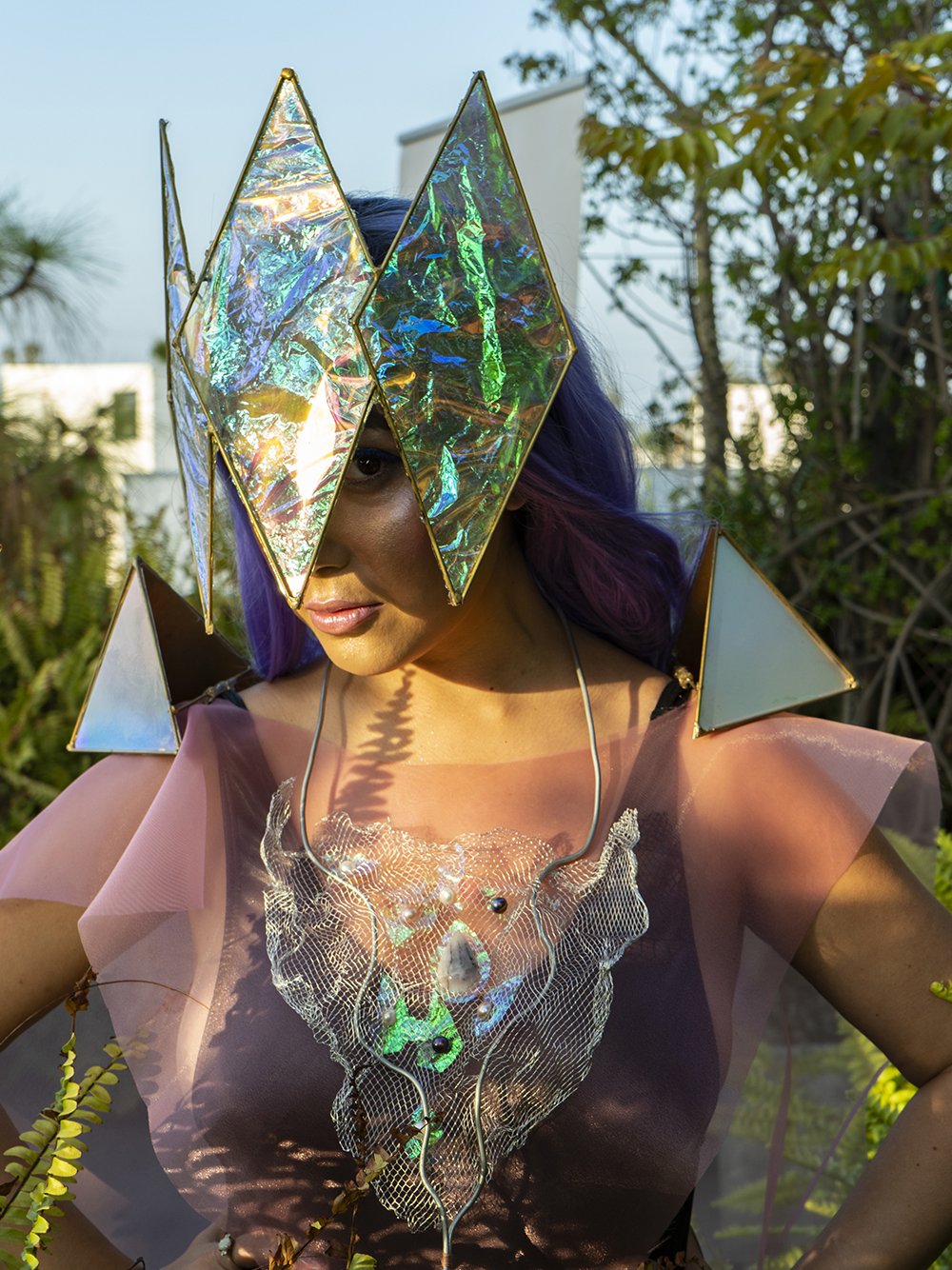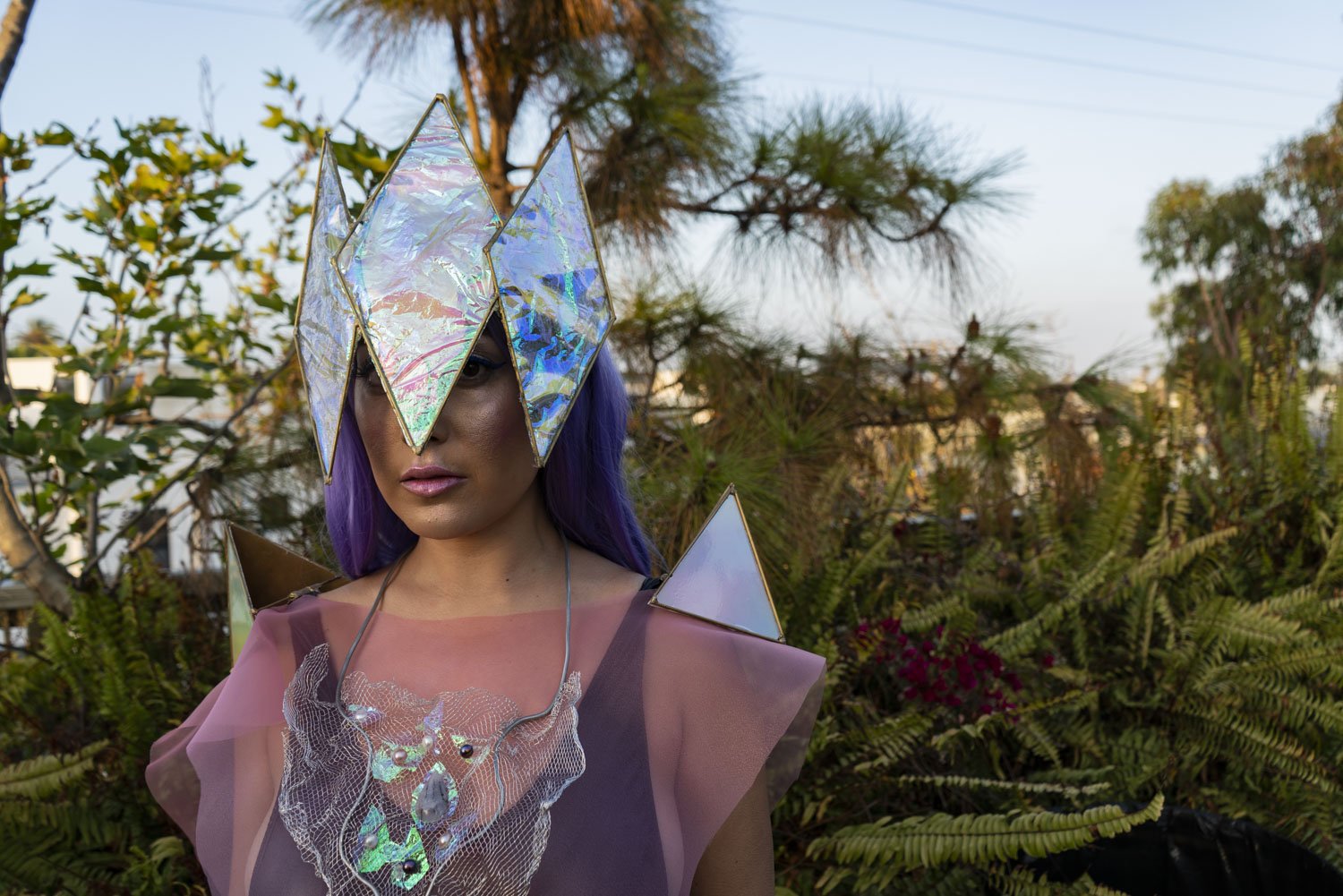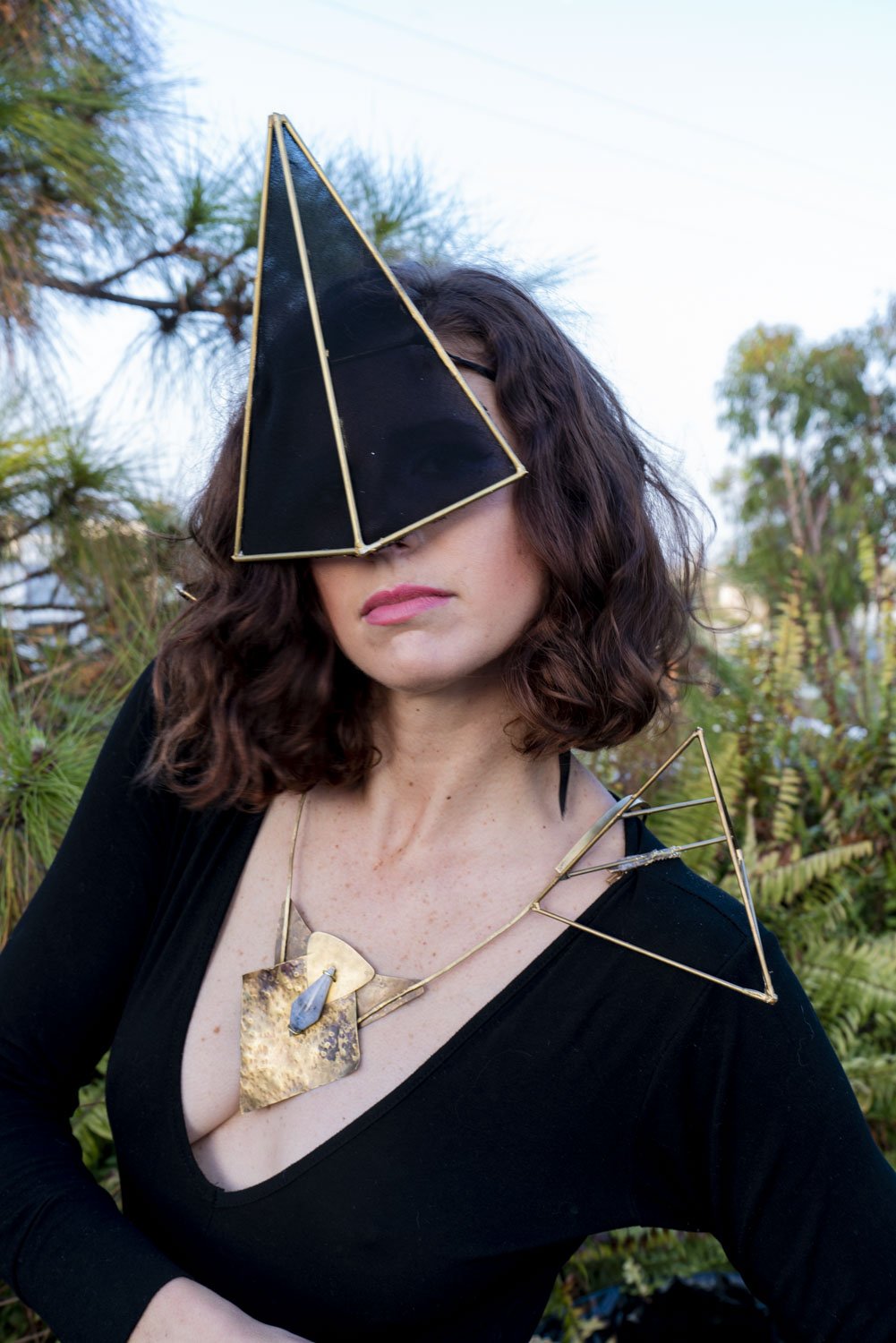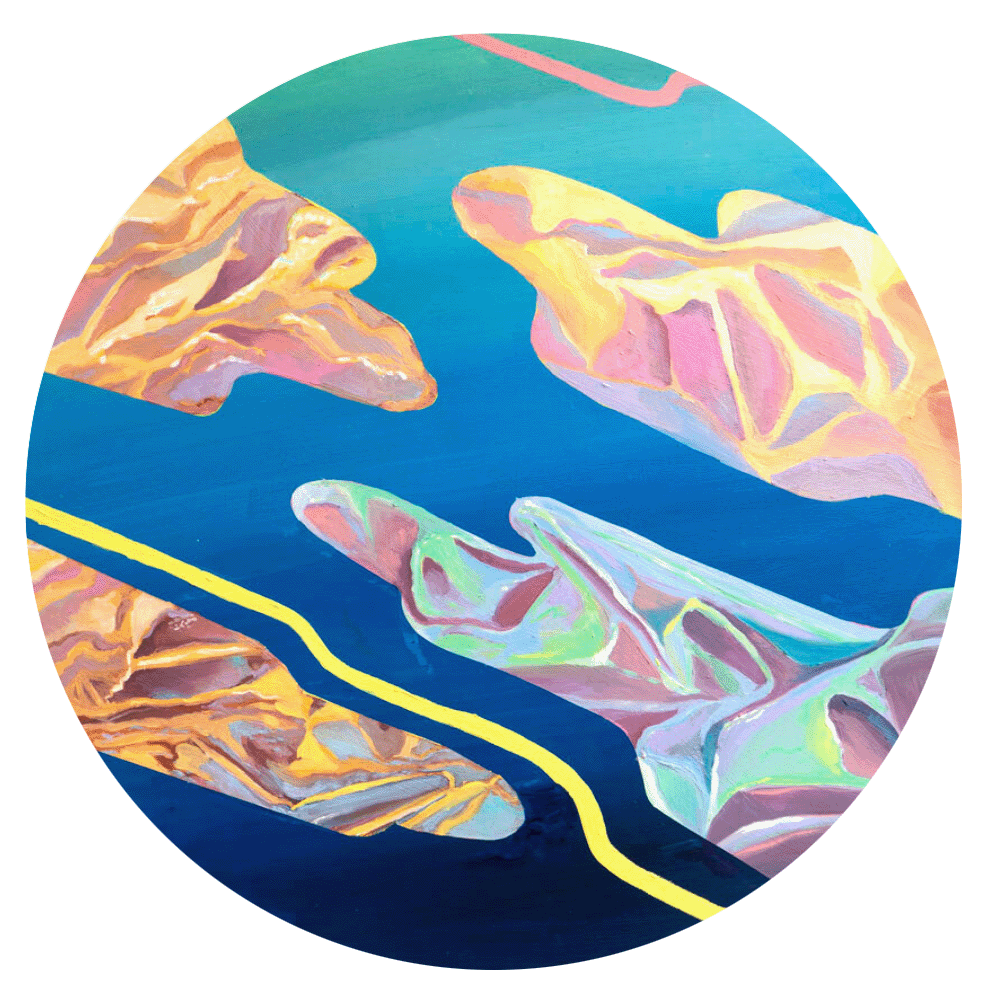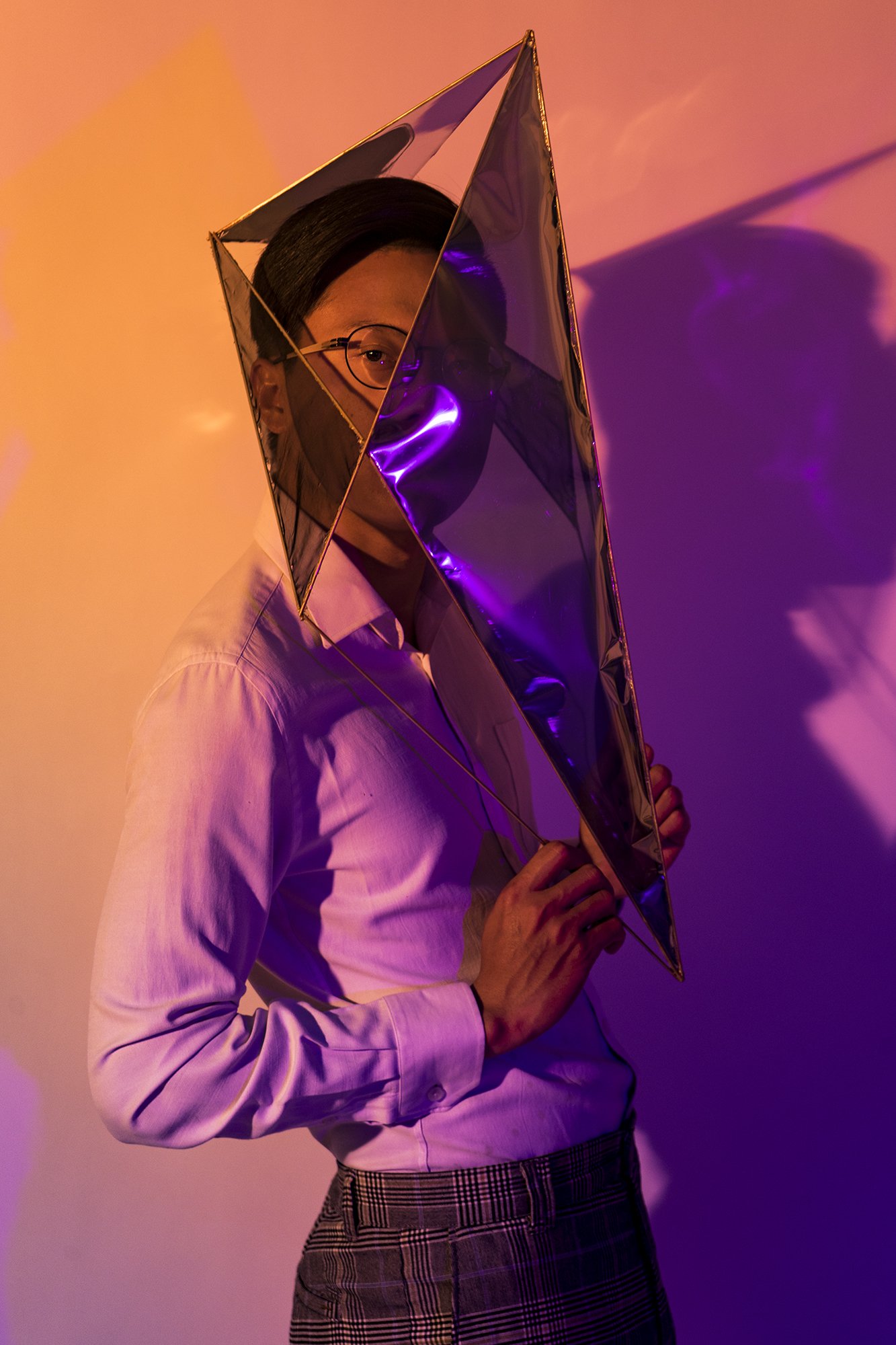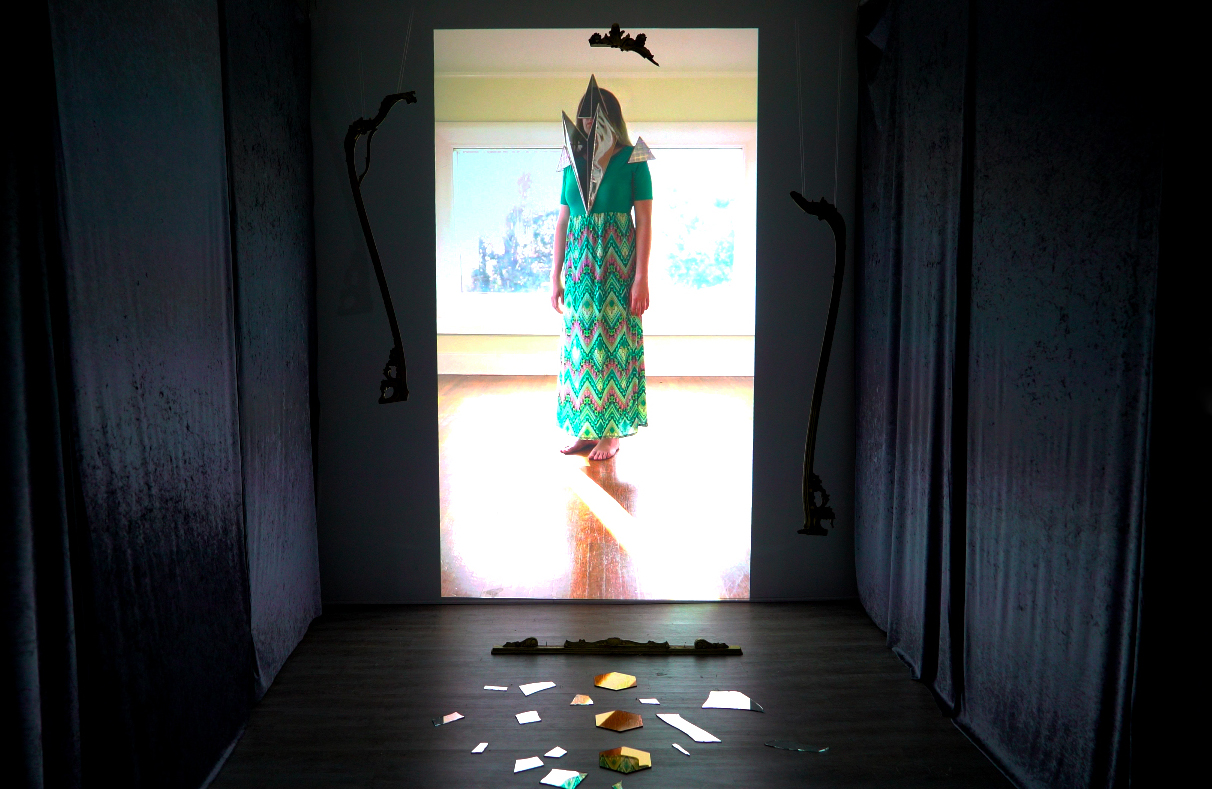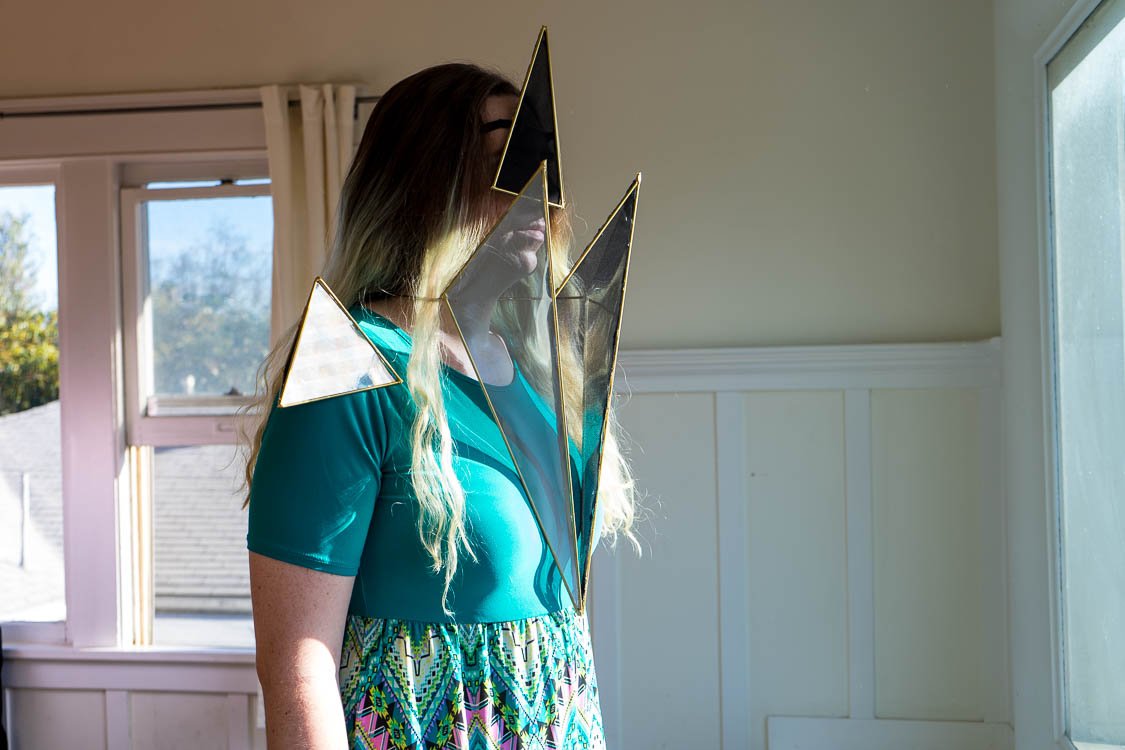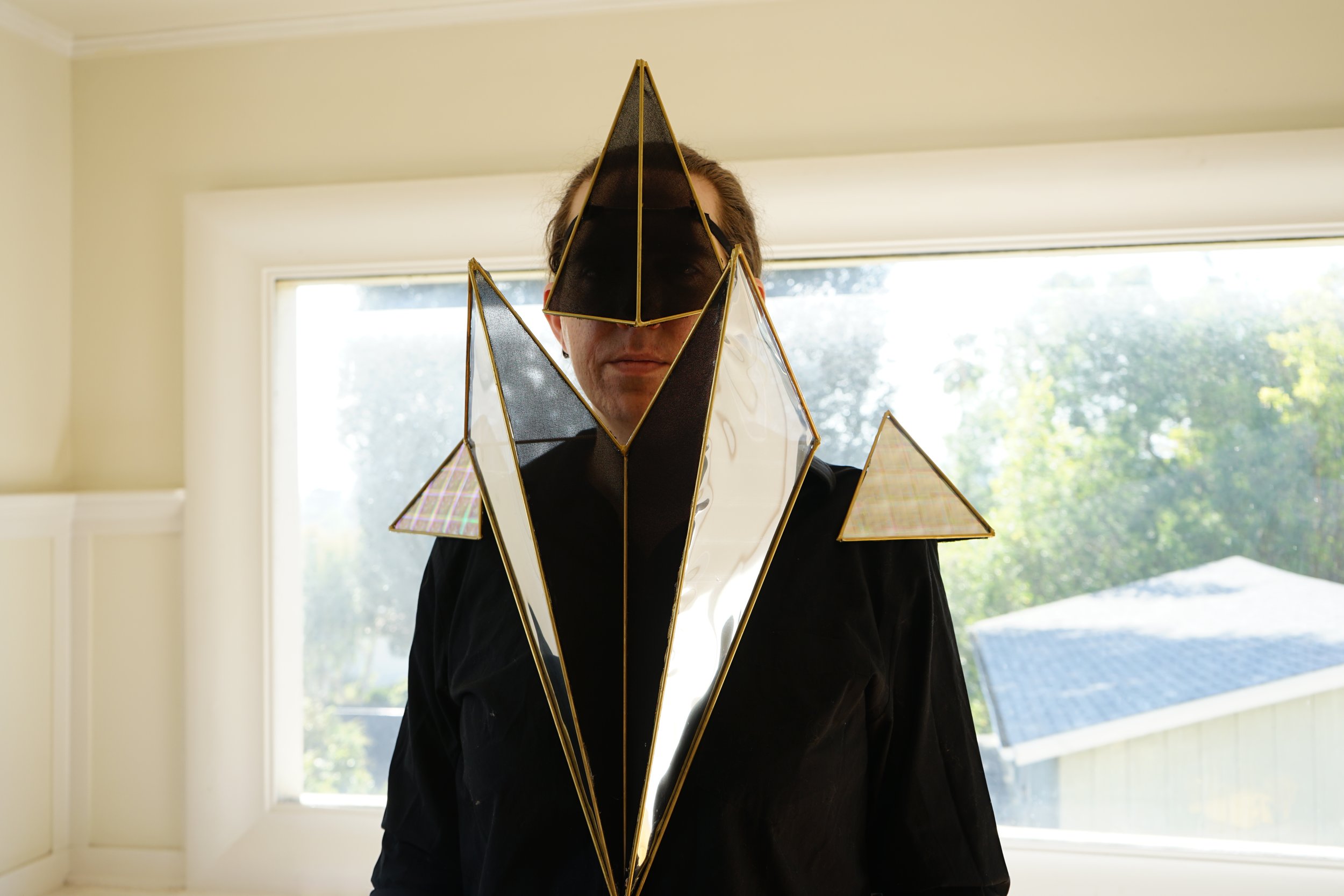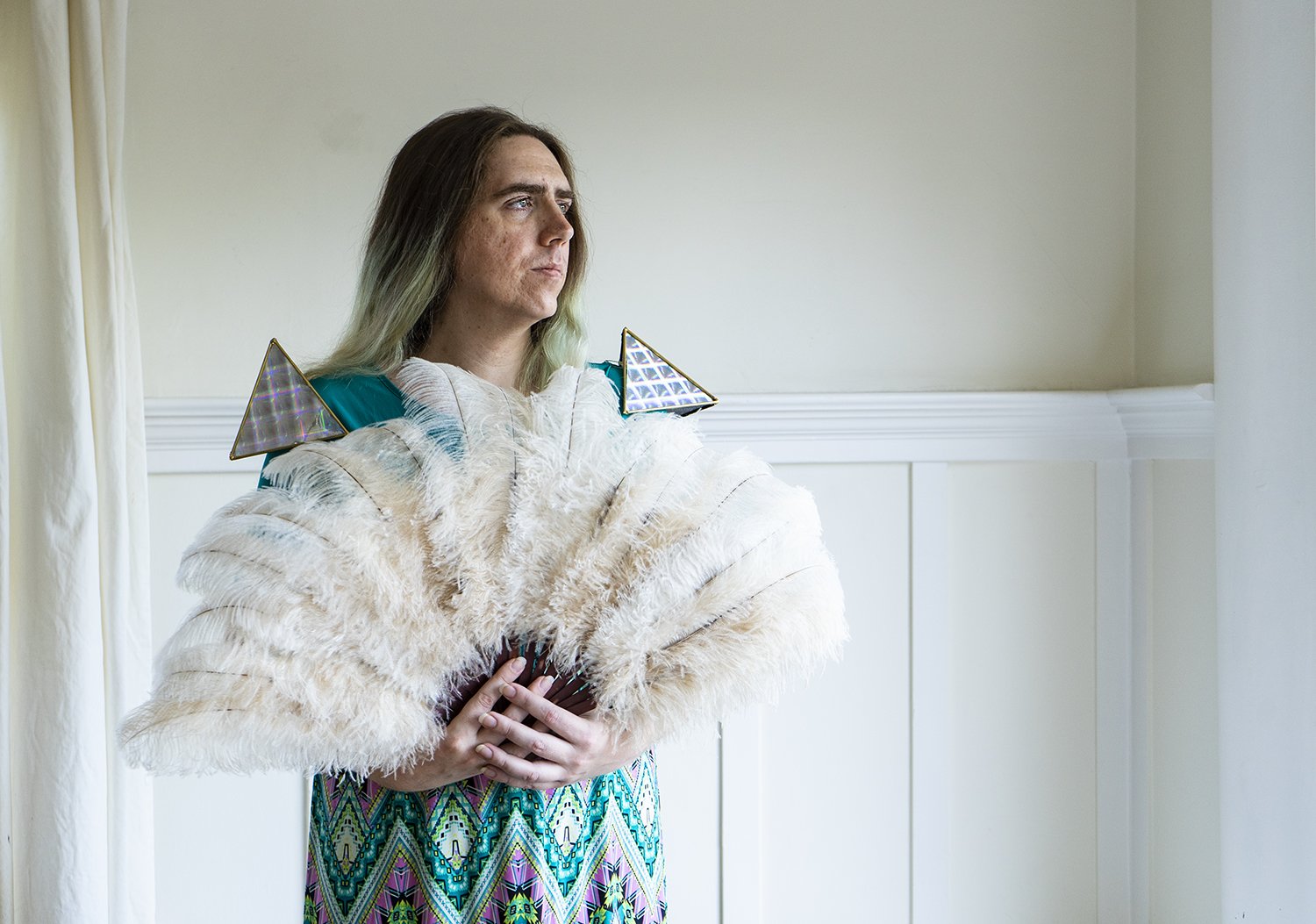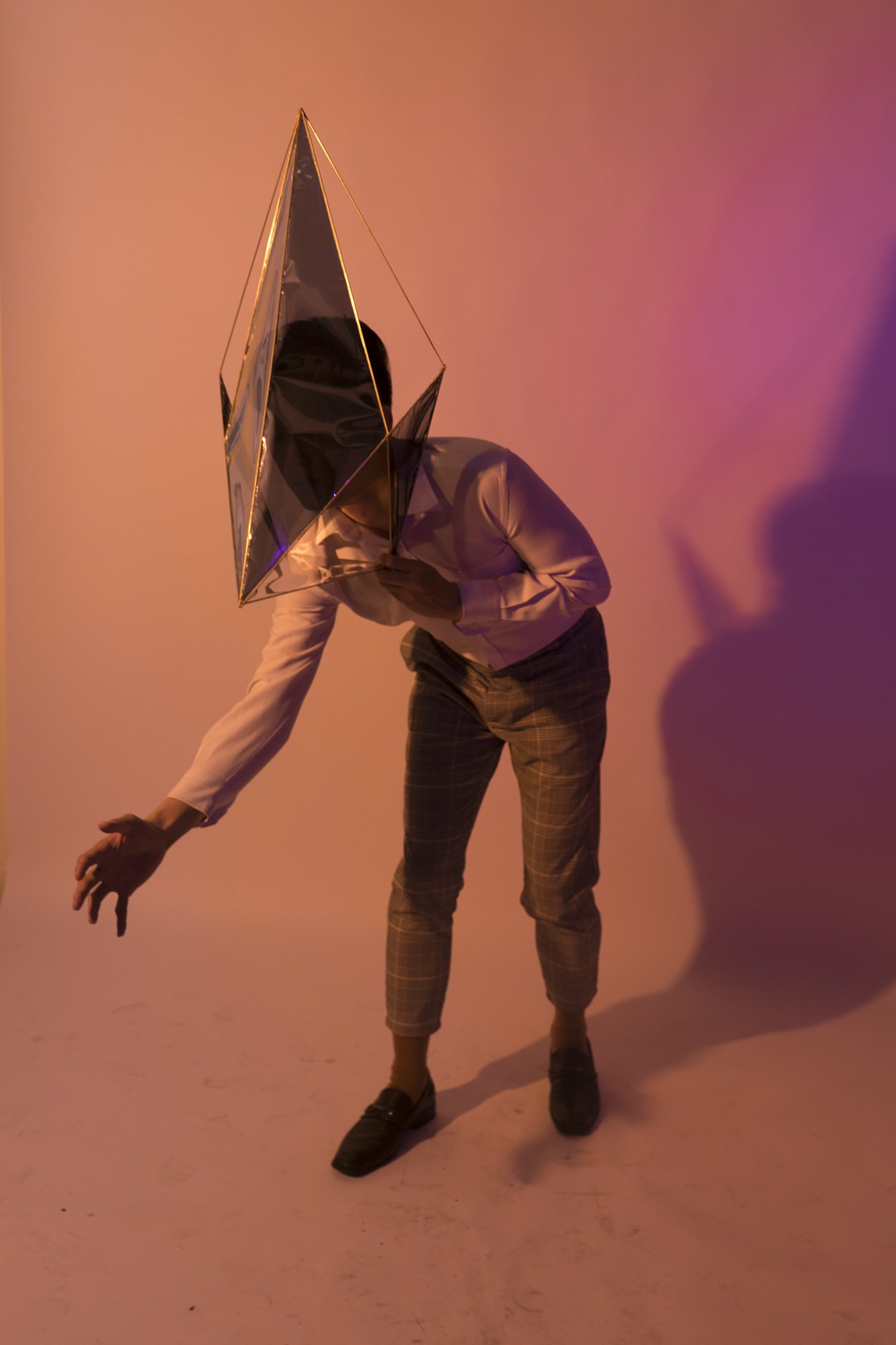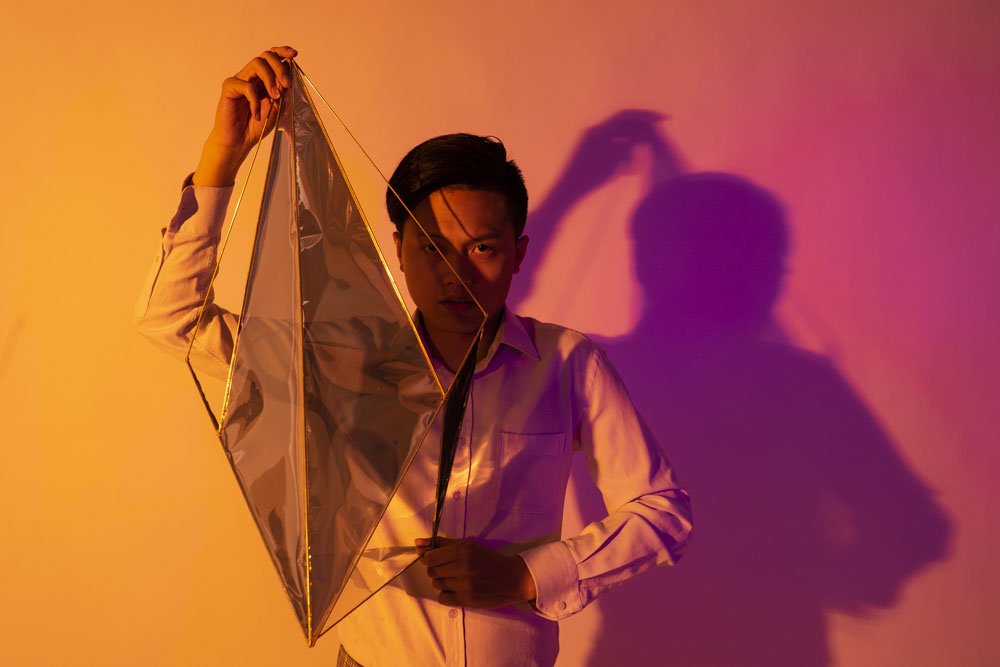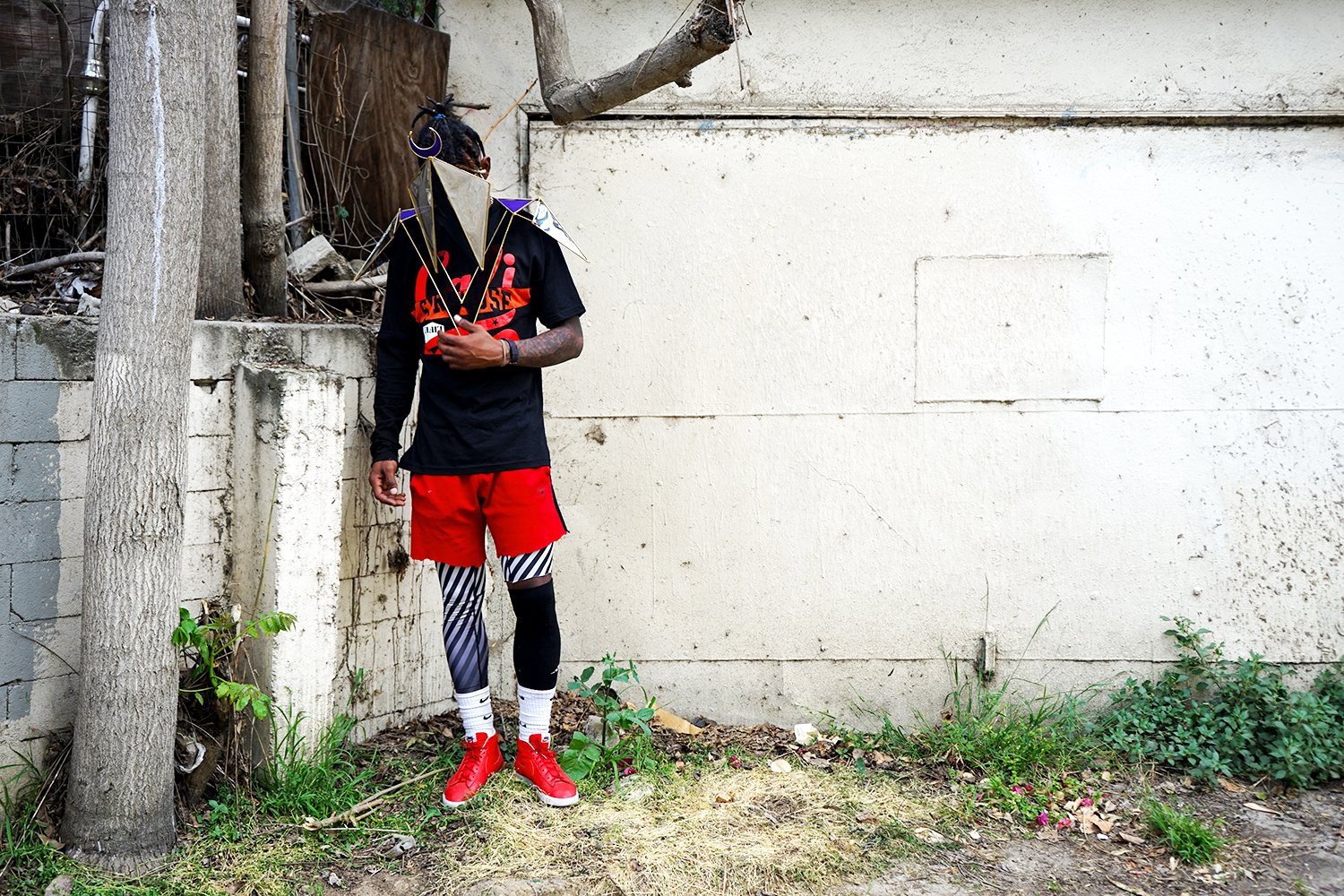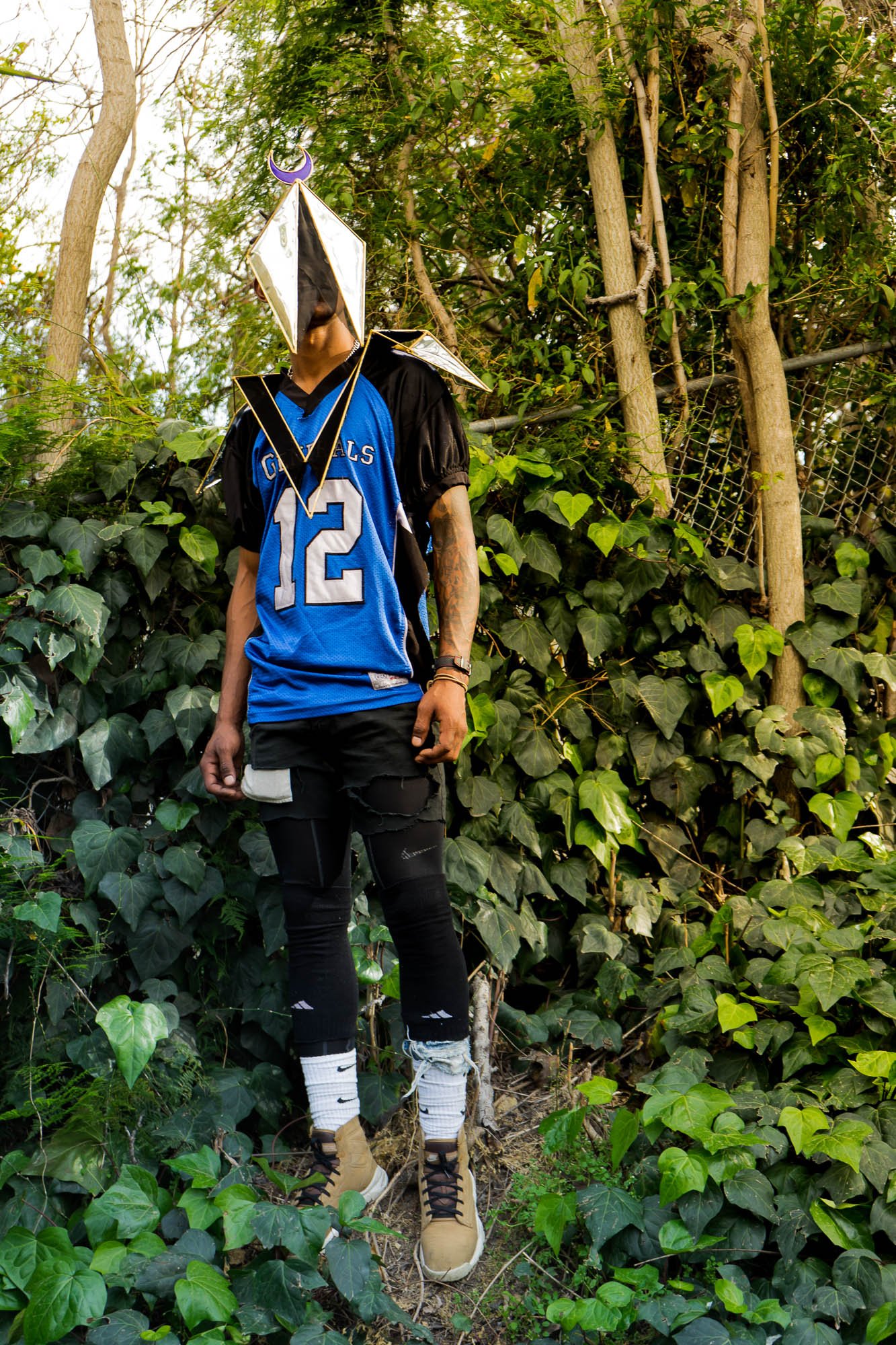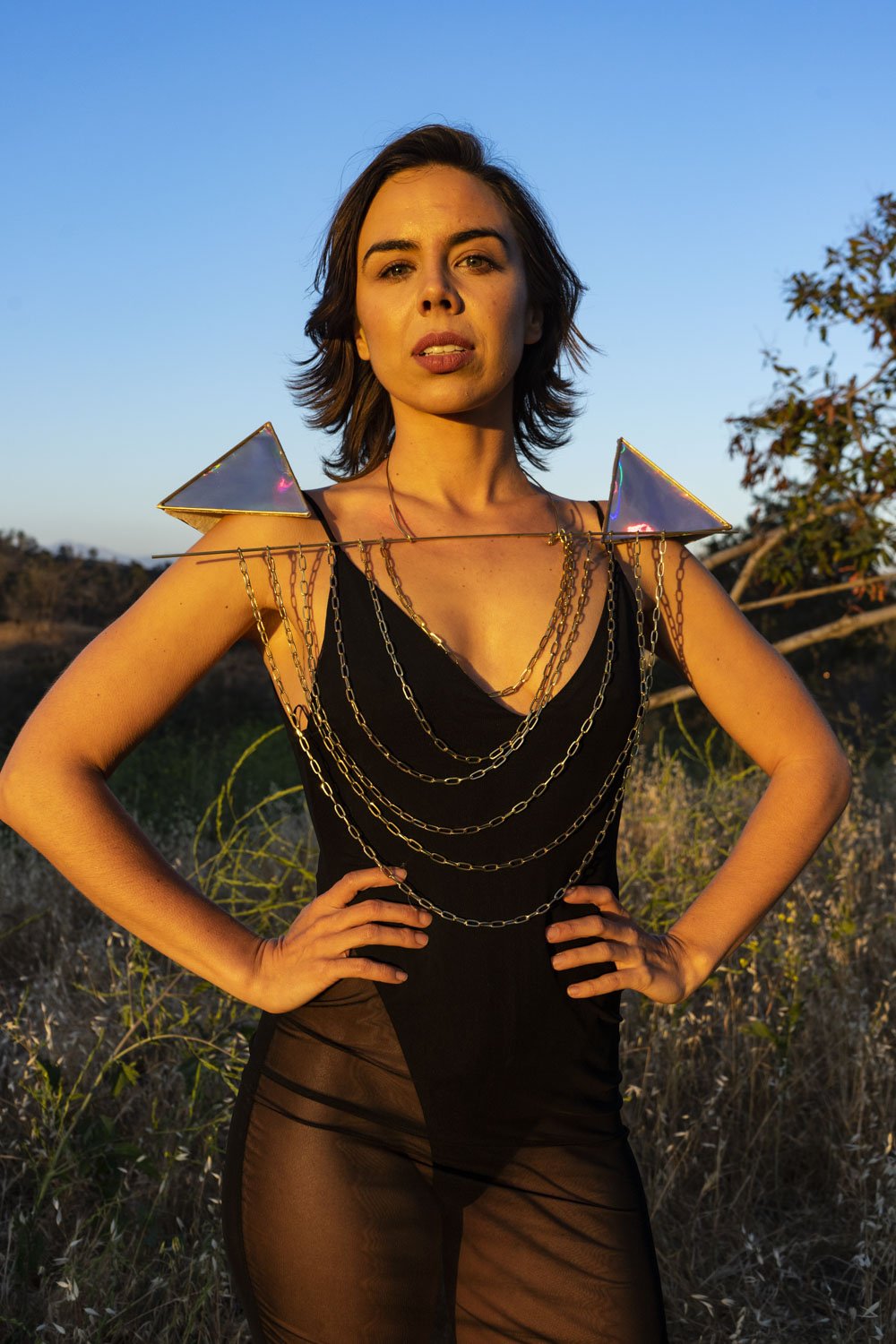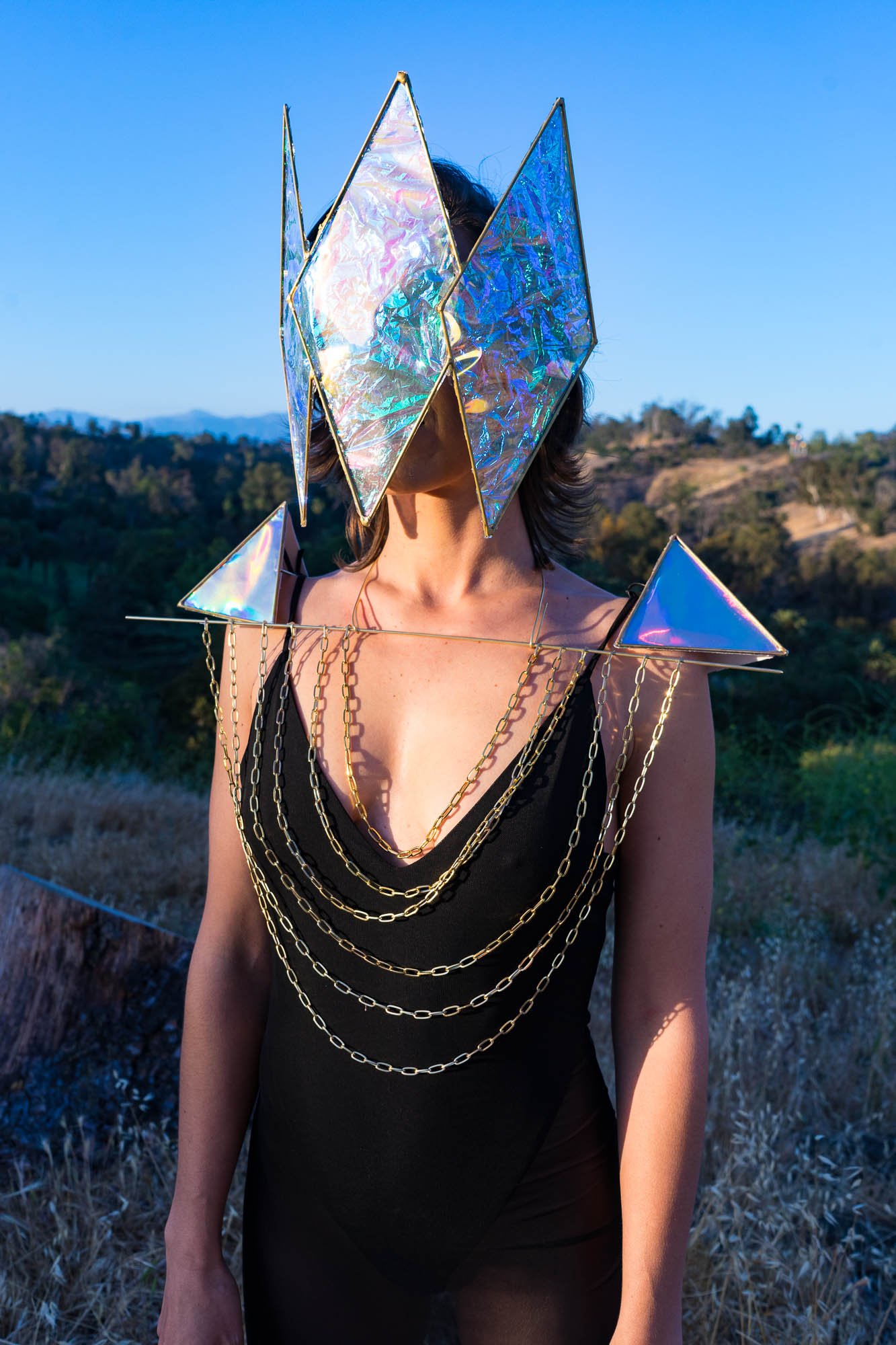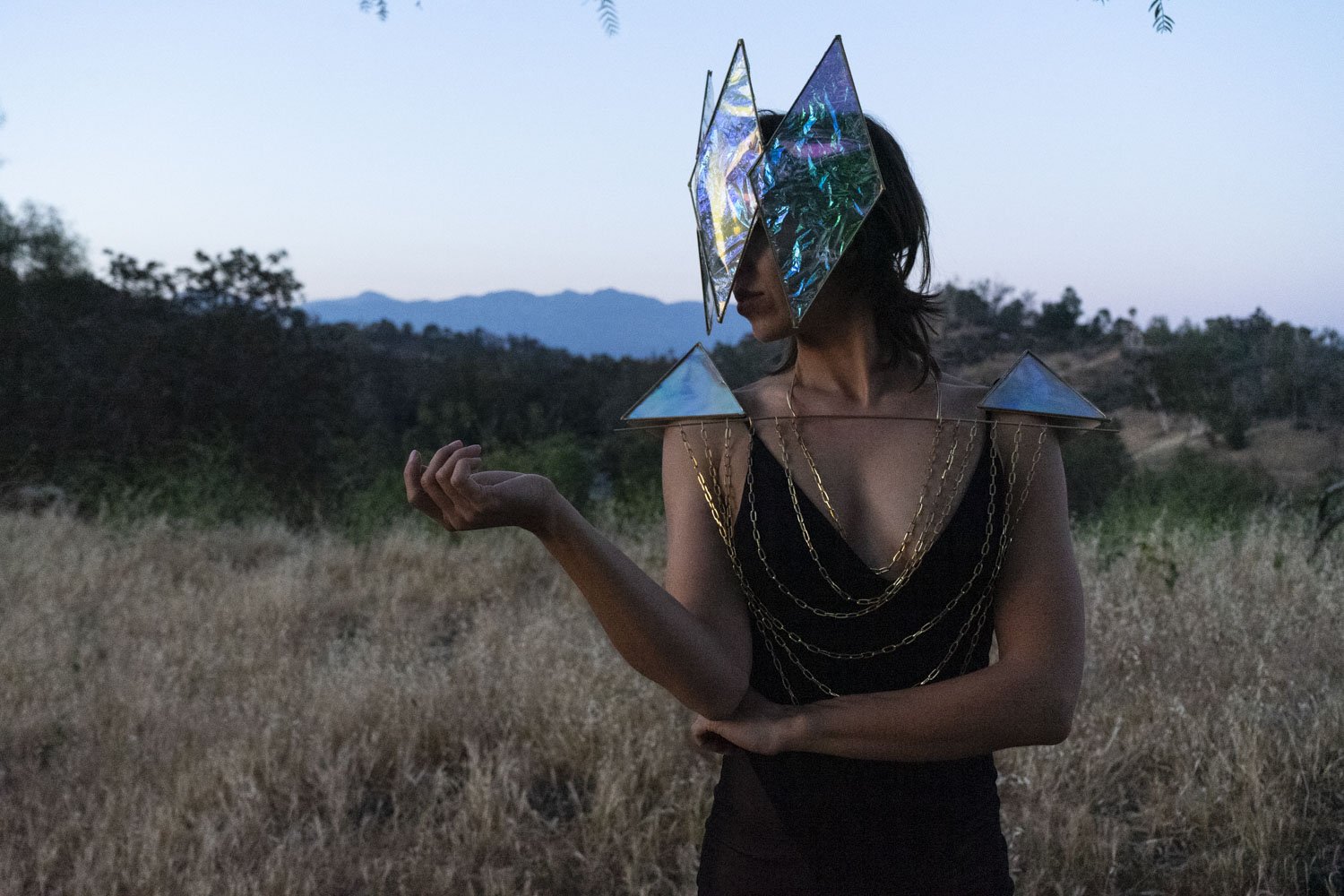PERSONA
Video and multimedia installation for The Voyeur Hotel exhibition at Astroetic Studios (2018)
“Persona” installation shot from the Voyeur Hotel at Astroetic Studios by Britt Harrison
The way we move through the world can largely be informed by the people who we think are watching us. We build up structures to protect our vulnerabilities and disguise the parts of ourselves that don’t feel acceptable. These masks reflect the world around us, some are sharp like armor, some are beautiful with ornate distractions and some form an all too perfect symmetry. Persona is an experimental art film created around these concepts of masking identity, fear of vulnerability and self-realization.
I am interested identifying the social pressures from our community, our families and our larger social context that seep into our inner lens which then shapes the way we present ourselves and interact with the world around us. I also hope to explore the point in which these expectations harm personal growth. Adapting to fit in is an important part of our social evolution, but some of us have created molds that don’t actually reflect our inner true selves.
The psychologist Carl G. Jung believed that the persona, our social mask, is not the totality of our being, but rather only a small component of a much larger personality. Jung felt that the path to becoming a wholly integrated and self-realized person begins with exploring our shadows. Our shadows are the parts of ourselves that we see as negative or that don’t fit in with the larger social dynamic. He states, “Until you make the unconscious conscious, it will direct your life and you will call it fate.”
Persona follows the stories of four different people who have deeply felt the weight of these pressures to align with a certain identity. They built up their masks and tried to blend in, but their masks became too heavy and bore down on their skin. So they found the edge that separate's their true form from these structures, and pulled them away. These are their stories.
M O R G A N described how it felt to grow up in the wrong body. She felt so different from her friends that she was worried she may of been an alien.. Even as a little boy, she didn’t feel comfortable in her own skin. She hoped that going through puberty would fix the strangeness that kept persisting, and remembers the feeling of devastation when it didn’t. When Morgan realized she was a born into the wrong gender, so many things were illuminated for her. Morgan transitioned to become a woman two years ago after living thirty years as a man. I saw tears in her eyes when she told me how happy she is now to finally unveil this concept of her identity and live openly with it.
Morgan grew up in the South. Gender was not something she knew she could safely explore there, but after moving to Los Angeles, she finally found the space to find herself. She fought hard for her happiness. Sharing this with her parents was incredibly challenging, they love and accept her, but are still struggling to understand how to treat her as she changes. Despite some painful moments, she finally feels seen.
O L I V E R moved to Los Angeles from Taiwan two years ago and still fights the feeling that people are staring at him as he walks down the street. How do you present yourself as a gay man in a completely different culture that, is in many respects still so foreign? He shared with me his inner conflicts about feeling confident in his skin. He feels unapproachable because he doesn’t fit the desired stereotype. He spoke to me about how white, masculine men are all that is represented here in the Los Angeles gay community. He is not white, and he is not masculine. He’s worked all his life to balance his feminine side by forcing himself to play sports and trying to be more assertive. Now, Oliver is working to feel more comfortable with who he is in the world and he hopes that society will also start to change to include his form of beauty.
K E L V I N showed me the scars on his hands from the fights he used to get in growing up in Puerto Rico. After a gun was held to his head, his family broke down and sent him to live in upstate New York. After a few missteps he eventually rose through the ranks of semi-professional to pro and made it into an Arena Football league. This was a huge success for him and his family, but to be a football player, they only wanted part of Kelvin Amparo.
He wrote hip hop music and had just released a new music video, it featured a party scene, so his coach decided that wasn’t the image they wanted to support on the league. He made him take down the video. Music was always there for Kelvin as he moved from state to state, country to country. He couldn’t lose that part of him, so he walked away from football. He moved to Los Angeles to pursue his dream of making music, even if that meant he’d be sleeping on couches for months. He looked at the life he built for himself, and the expectations from everyone around him and decided that wasn’t what he wanted to see in the mirror any more. So he broke the mirror.
J A N T Z E N grew up in a very small town in the Midwest. Home to about 1,100 people. She naturally fell into a performative role and decided to pursue a career as a weather reporter that eventually took her to the big city, Los Angeles. She became a public figure, but this conservative look wasn’t what drove her. All the while she lived a double life, playing in a band and partying until sunrise, just looking to see and be seen. The moment when someone recognized her on the street at 7 am a bender and days of missed work, she knew she needed to make a change.
Her boss really loved what she brought to the network and tried everything to keep her. So she took some time off to decide what she really wanted. She shaved her head and locked herself away to rediscover the things she truly enjoyed. She decided to quit her job and live a more visible, less composed life. She became a nude model, posing under the name of Naked Sister for artists and photographers. This was challenging to explain to her family back home, but Jantzen is truly happy. A beautiful quote by Carl Jung speaks to this the best, ”One does not become enlightened by imagining figures of light but by making the darkness conscious.”
